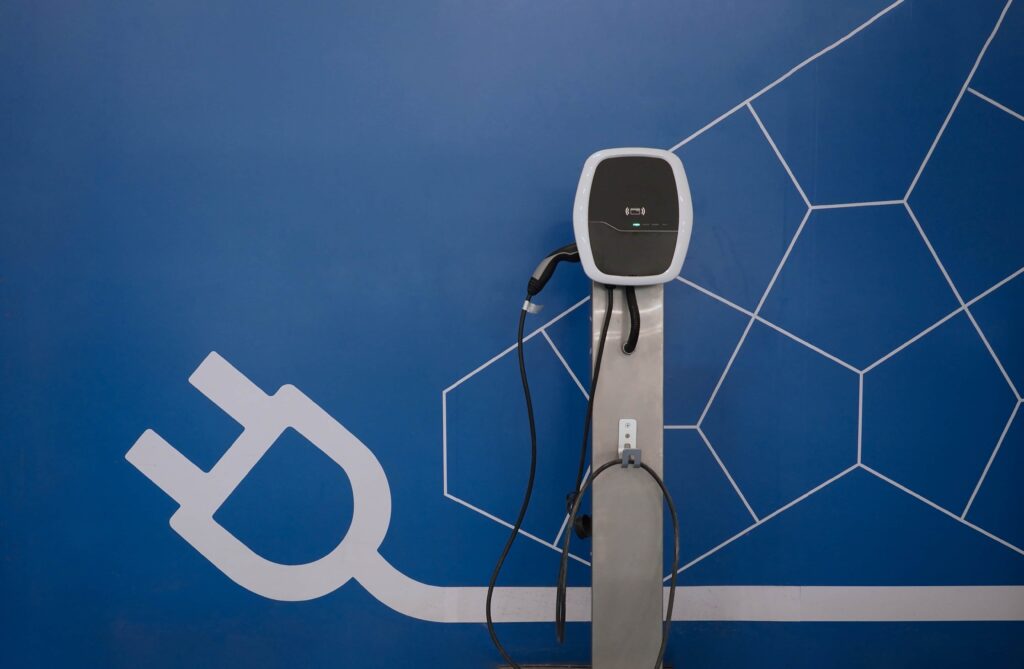Electric vehicles (EVs) are a key part of the UK’s move to a more sustainable future, and the government plans for everyone to switch over to them by 2035.With over half of the UK’s transport emissions originating from cars, the shift towards EVs is crucial for achieving national targets. Supported by government grants for EV chargers, including those available through the Flintshire County Council, residents across North Wales are encouraged to embrace cleaner, greener transportation options. This initiative not only supports local environmental goals but also promises long-term savings for individuals considering the switch to EVs, aligning with the broader vision for a carbon-neutral future.

With a keen focus on reducing carbon footprints, councils like Flintshire County and Denbighshire are committed to achieving net zero carbon emissions by 2030 and 2031 respectively. These efforts are mirrored in neighboring areas such as Wrexham and Cheshire West and Chester, where significant strides have been made in cutting CO2 emissions through initiatives targeting industrial sectors and promoting renewable energy sources.
Cities with High Vehicle Carbon Emissions in the UK
London: As the largest city in the UK, London has significant vehicle emissions due to its dense population and heavy traffic.
Birmingham: Known for its extensive road network, Birmingham also experiences high levels of vehicle emissions.
Manchester: With a bustling urban environment, Manchester contributes notably to vehicle-related carbon emissions.
Leeds: This city has a high volume of traffic, leading to substantial emissions.
Glasgow: As Scotland’s largest city, Glasgow faces considerable vehicle emissions.

Is there an electric car charging point grant?
Navigating the ins and outs of EV charger grants can feel like a bit of a rollercoaster, especially with all the name changes over the years. If you’ve come across terms like the ‘OLEV grant scheme,’ ‘OZEV,’ or ‘EVHS,’ don’t worry—they’re just the old monikers for what’s now known as the EV chargepoint grant.

This handy little grant is available to folks in England, Wales, and Northern Ireland, and it’ll cover 75% of the cost to install a chargepoint at your home, capped at £350. But, there’s a catch—it’s only available if you’re a homeowner living in a flat or if you’re renting, provided you’ve got your own designated, private off-street parking spot. If you are landlord, there is also a grant for you. If you tick those boxes, this grant could make your switch to electric vehicles that bit easier, all while helping push the UK towards a greener future.
Understanding electric car charging point grant
This grant started in April 2022, replacing the Electric Vehicle Homecharge Scheme, and is open until 31 March 2025.
What’s available to you
The electric vehicle chargepoint grant, often referred to as the EV chargepoint grant, can give you a financial boost when it comes to installing a chargepoint at your home. You can receive either £350 or 75% off the purchase and installation cost of a socket—whichever works out to be the lower amount.
Landlord Qualification Requirements
You’re eligible for the EV chargepoint grant if:
- You own and live in a flat, including those bought through shared ownership, or you rent a residential property anywhere in the UK, from bustling cities like London, Manchester, and Birmingham to quieter towns such as St Albans, Harrogate, and Falmouth.
- Your home has its own private off-street parking space.
- You own an eligible electric vehicle.
However, you cannot apply for this grant if:
- You’ve already claimed the grant, or any of its predecessors, such as the Electric Vehicle Homecharge Scheme (EVHS) or the Domestic Recharge Scheme, anywhere across the UK.
- You’re moving house or planning to move, whether within large cities like Glasgow, Edinburgh, and Cardiff, or smaller locales like Cheltenham or Basingstoke.
- You want a new chargepoint, even if your new car isn’t compatible with the current one.
- You’re looking to relocate an existing chargepoint to a new property.
- You live in a house that you own, rather than a flat, anywhere in the UK.
Property Requirements Across the UK
Your property must be in the UK, including major cities like Liverpool, Leeds, and Bristol, as well as regions like Norfolk, Cornwall, and the Scottish Highlands. The grant is only applicable to an existing residential property where you currently live—it can’t be applied to an unoccupied property or one still under construction. You may need to provide supporting documents, like a rental agreement if you’re renting the property.
Parking Space Criteria
Your parking space must be:
- Off-street, private, and clearly defined—though it doesn’t have to be physically attached to your property, whether you’re in Sheffield, Brighton, or Inverness.
- Accessible to you at all times.
- Owned by you or under your legal control. You might need to provide evidence, such as Land Registry title deeds, to prove this.
If you’re in a block of flats anywhere from Birmingham to Edinburgh, you’ll need to show proof of legal rights and permissions, such as approval from the freeholder. Your installer will also assess whether your parking space is suitable for safe EV charging.
Vehicle Requirements
The grant only applies to vehicles listed on the OZEV-approved electric vehicles list. You must provide proof that you own or regularly use an eligible vehicle, whether as the registered owner, as part of a lease for at least six months, or as a work vehicle for at least six months. If you have a vehicle on order, that qualifies too.
Additional Information for Leasing Vehicles
If your vehicle is leased as part of a bundle that includes a chargepoint, the lease agreement must:
- Specify that you will own the chargepoint once payment is completed.
- Clearly list the cost of the chargepoint and installation, including VAT.
Additionally, you must ensure that:
- The chargepoint warranty meets the grant’s requirements.
- The vehicle lease term is at least six months.

Eligible Vehicles for OZEV residential chargepoint grants
Below are some of the most common and popular models in the UK. For the complete list, please visit gov.uk.
| Manufacturer | Model | Vehicle Type |
| Abarth | 500e | Car |
| Alfa Romeo | Tonale Plug-in Hybrid | Car |
| Audi | A3 e-tron | Car |
| BMW | i3s | Car |
| Citroen | C5 Aircross PHEV | Car |
| Mercedes-Benz | EQB | Car |
| Tesla | Model 3 | Car |
| Toyota | bZ4x | Car |
| Vauxhall | Astra Electric | Car |
How to apply for a grant to install an EV chargepoint
Before You Apply:
- Check Your Vehicle: Ensure that your vehicle is listed among those approved by the Office for Zero Emission Vehicles (OZEV).
- Verify the Chargepoint: Confirm that the chargepoint you plan to install is on the list of OZEV-approved chargepoint models.
Application Steps:
- Get a Quote: Reach out to an OZEV-authorised installer for a quote on the installation work.
- Start Your Claim: Request the installer to initiate your grant claim.
- Complete Eligibility Check: You will receive an email with a link to an eligibility check. Complete this online.
- Installer’s Role: If you’re eligible, your installer will handle the grant application on your behalf.
After Your Installer Has Applied:
- Approval Notification: OZEV will notify your installer once your application is approved, allowing them to begin the work.
- Installation Timeline: The installer must complete the work within 90 days of approval or request an extension. If the work is not completed on time, ask the installer to submit a new application.
Claiming the Grant:
- Final Steps: After installation, your installer will claim the grant for you.
- Invoice Details: Your invoice will reflect the total installation cost minus the grant amount. The installer will provide OZEV with details of your chargepoint, including photographs of the installation and a copy of the invoice.

